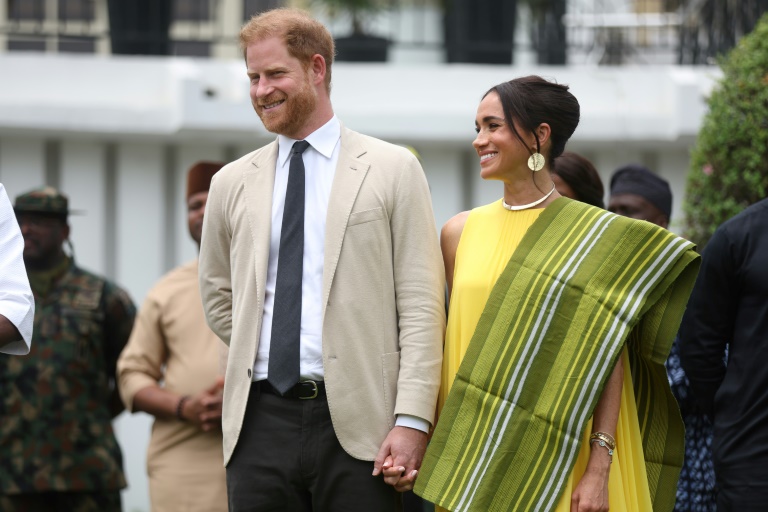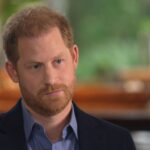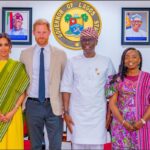During the weekend I followed the visit of Prince Harry and his wife Meghan with a heavy dose of nostalgia. Their visit evoked the memory of Harry’s forebears’ visits to Borno State, where I was a functionary in the government and was actively involved in their reception.
Harry’s grandad, Prince Phillip, the Duke of Edinburgh, came calling to Borno State in 1989. He visited in his capacity as President of the Worldwide Fund for Nature. The prince was received at Dogana village of Bade local government (now in Yobe State), where a sanctuary of birds of different species from Europe and other continents of the world come to roost during winter. The spot around the Hadejia-Nguru Wetlands was of immense interest to bird watchers, particularly those seeking out endangered species.
Col. Abdu One Mohammed, Military Governor of Borno State, led the Borno officials to receive the Duke at Wachakal village where an airstrip had been specially constructed for the purpose. From there, we proceeded to Dogana and stood around the bow lake amidst thousands of birds chirping away as the governor and the duke made speeches.
Harry’s dad and mum, Charles and Diana, the Prince and Princess of Wales, came a few months later for a full state visit to Nigeria in March 1990. After their engagements in Lagos, the federal capital, they were received in Maiduguri by the Military Governor, Col. Mohammed Maina, where they spent a few days visiting places of interest and engaging with the people.
They were treated to a mini-durbar at the Shehu’s palace. With Kolo-Kolo Kingibe who acted as chaperon, Diana was led into the inner household of the Shehu of Borno. Princess Diana met the Shehu’s wife and had photo opportunities. One of the princess’ most memorable outings was the visit to the Molai Leprosarium where Diana was pictured touching the lepers with her naked hands.
The visits of the British royalty had been unceasing since the first recorded one in 1925. That was when Prince Edward, then the Prince of Wales and heir apparent to the British throne visited Nigeria as part of a tour that took him around some of their colonies in Africa. The next visit of British royalty would probably be the visit of the Queen, accompanied by her husband, Prince Phillip the Duke of Edinburgh, in 1956. Nigeria was preparing for independence at the time when the Queen herself was just four years old on the throne.
The royal party flew direct to Kaduna from where they toured the three regions for several days each. The pattern of the royal visits in the North would always be three-pronged: watch a durbar, visit military instalments and enjoy a few days in Jos where the mild temperate climate feels like home. A high point of the visit was the spectacular durbar arranged for the royal couple in Kaduna whose sheer, magnificent pageantry is yet to be surpassed.
Prince Harry is now following in the footsteps of his forebears. Even though he has relinquished his role as a senior member of the royal household due to some family altercations, Harry still retains a great deal of exposure to the humanitarian and environmental landscape. He founded the Invictus Games 10 years ago. The game is a sporting competition for injured servicemen and women, both serving and veterans.
Invictus Games is an adaptive sport more commonly known as para-sport and it helps the participants to overcome their physical or mental health illness or injury. The game grew in bounds having participants from all the continents of the world. The game recently celebrated its 10th anniversary and Prince Harry is seeking the participation of more African countries.
The prince is the game’s leading light and promoter and it is one of the reasons he is in Nigeria to advance the cause of the game at the invitation of General Christopher Musa, the Chief of Defence staff. Nigeria is the first country in Africa to join the game, having participated for the first time, last year.
I have watched the engagements of Prince Harry since he arrived in the country. He and his wife, Meghan, have had good outings so far wowing their audience wherever they stepped into. They were welcomed to Kaduna on Friday by the state governor, Uba Sani. Meghan, in particular, was welcomed as our daughter having found out that her genes have more than 43 per cent of Nigerian blood.
I have watched the prince looking impressive in Babban Riga and donning a Zanna Bukar cap given to him by his host, the Kaduna State governor. They were at the military hospital where the prince spoke with the injured soldiers. He later played sitting volleyball with the Nigerian Invictus Team. They were hosted at a reception by the Chief of Defence Staff. They later headed to Lagos for the conclusion of their visit to Nigeria.
I hope they will leave the country with fond memories of their visit. One hopes that the Invictus profile will continue to fly until it becomes part of the Olympic Games.

 Join Daily Trust WhatsApp Community For Quick Access To News and Happenings Around You.
Join Daily Trust WhatsApp Community For Quick Access To News and Happenings Around You.

